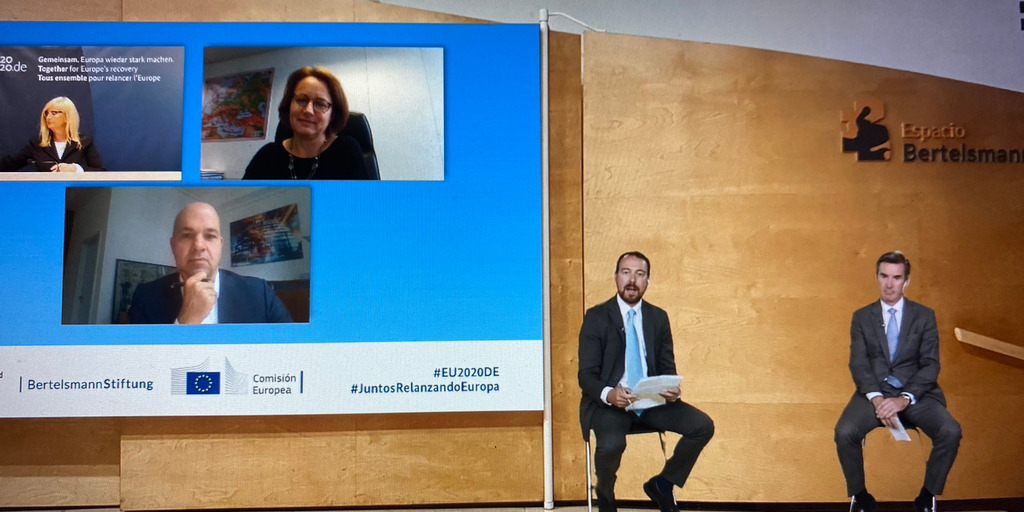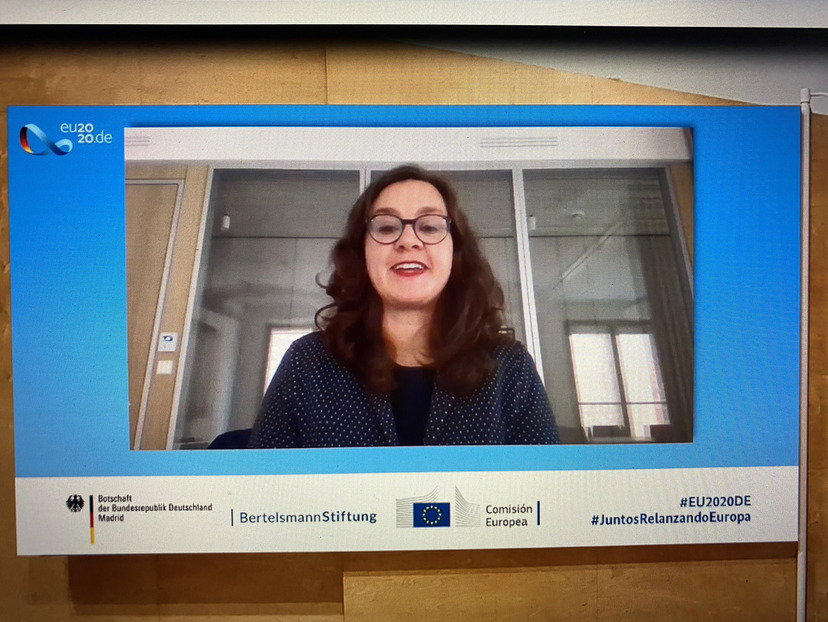Katharina Gnath from the Europe’s Future programme opened the event with some introductory words. She stressed that the coronavirus crisis has hit all European economies and that it is therefore of high importance to have NGEU as a European-wide solution. The crisis has shown increased need for European cooperation. As the Council approved the Commission’s proposal for this 750bn euro package, it is now up to the Parliament to implement the new instrument into legal basis.
After the short introduction into the current situation around NGEU, moderator Federico Steinberg introduced all panellists, namely Céline Gauer, (Acting) Head of the Recovery and Resilience Task Force (RECOVER) and deputy Secretary-General, Claudia Dörr-Voss, State Secretary at the Federal Ministry for Economic Affairs and Energy of the Federal Republic of Germany, Carlos San Basilio, Secretary General of the Treasury and International Financing at the Ministry of Economic Affairs and Digital Transformation of the Kingdom of Spain and Marcel Fratzscher, President of the German Institute for Economic Research (DIW Berlin). He emphasized that there is currently lots of confusion about how NGEU is going to work. To get a better understanding of NGEU and its conflicts he asked the panel questions about the implementation, concrete goals like climate-related spending, debt-to-GDP ratios, growth prospects and the role of monetary and fiscal policy.











